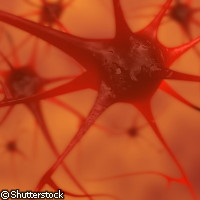Europeans offer hope for memory loss sufferers
Age-related memory loss is a debilitating condition that carries a heavy personal and societal burden. However, promising results from the EU-funded EPITHERAPY ('An epigenetic approach towards the recovery of neuronal network plasticity and cognitive function in neurodegenerative') project suggest that we are closer than ever to understanding memory loss in older sufferers, and to developing a memory-boosting drug. Results are published in the journal Science. More than 7 million Europeans are affected by dementia, an illness caused predominantly by neurodegenerative diseases, such as Alzheimer's or Huntington's disease. Dementia affects cognition areas, including memory, attention, language and problem solving, and in its later stages often results in disorientation. Despite considerable research to date, there is no cure. Experts predict that the number of Europeans expected to be living with dementia will double to 14 million by the year 2025. This means an impaired quality of life for a large majority of people, and in turn a substantial economic cost to Europe. But cognitive decline, especially related to memory, is a normal part of ageing, writes Dr J. David Sweatt of the University of Alabama at Birmingham (UAB) in the US, whose paper is published in Science alongside that of European researchers on the same subject. 'Indeed, the painful reality is that ageing-related cognitive decline likely begins when one is in their late 40s. This deterioration is particularly pronounced in declarative memory - the ability to recall facts and experiences,' adds Dr Sweatt, who is chairman of UAB's Department of Neurobiology. For Dr Sweatt and his European colleagues, the great promise for stopping memory loss (and even in enhancing memory in animal models) lies in drugs known as histone deacetylase inhibitors. 'It's a real proof of concept,' said Dr Sweatt. 'We've been studying histone deacetylase inhibitors for some 10 years. Studies in our lab and elsewhere strongly suggested that these drugs could potentially reverse ageing-associated memory dysfunction.' Findings by the European team, led by Dr Shahaf Peleg of the University of Göttingen in Germany, supplement and support work done previously in Dr Sweatt's laboratory. Under the EPITHERAPY project, Dr Peleg's team observed the positive impact of histone deacetylase inhibitors in mouse models. 'The new results from Peleg's group provide important proof-of-principle that this might be a viable approach to therapeutic interventions in aging,' explained Dr Sweatt, adding that further research is essential to determine if the results trigger memory formation in humans. 'These studies will hopefully lead to more effective prevention strategies to improve quality of life in the aged, as well as contribute to a better understanding of memory,' the US scientist concluded. Funding support for EPITHERAPY was provided by NEURON ('Network of European funding for neuroscience research'), part of the EU's ERA-Net (European Research Area-Network) scheme. The aim of NEURON is to link European national research funding programmes and funding activities in the field of disease-related neurosciences. Due to end in December 2010, NEURON has received EUR 2.7 million in funding support from the EU's Sixth Framework Programme (FP6). In addition to the University of Göttingen, the EPITHERAPY project is represented by researchers from Centre national de la recherche scientifique (CNRS) in France and Universidad Miguel Hernandez in Elche in Spain.



